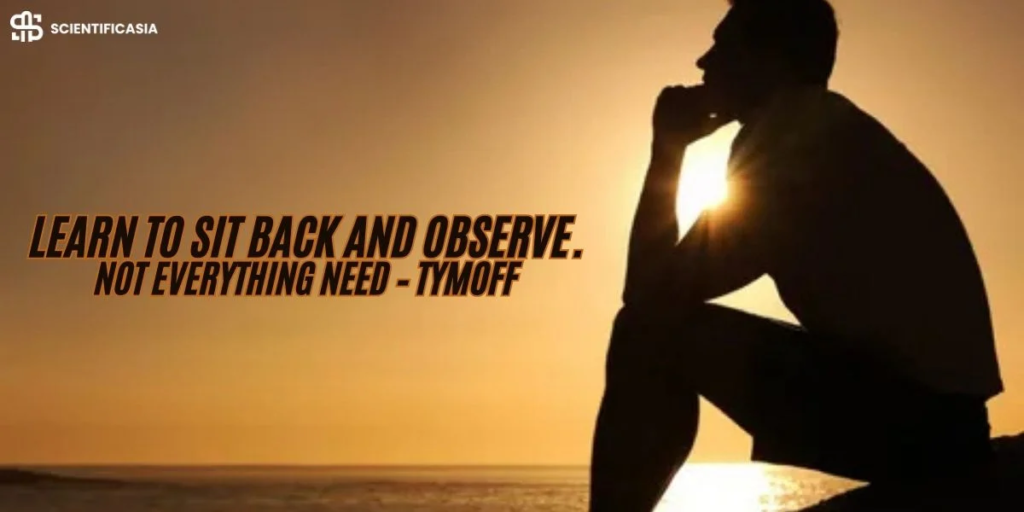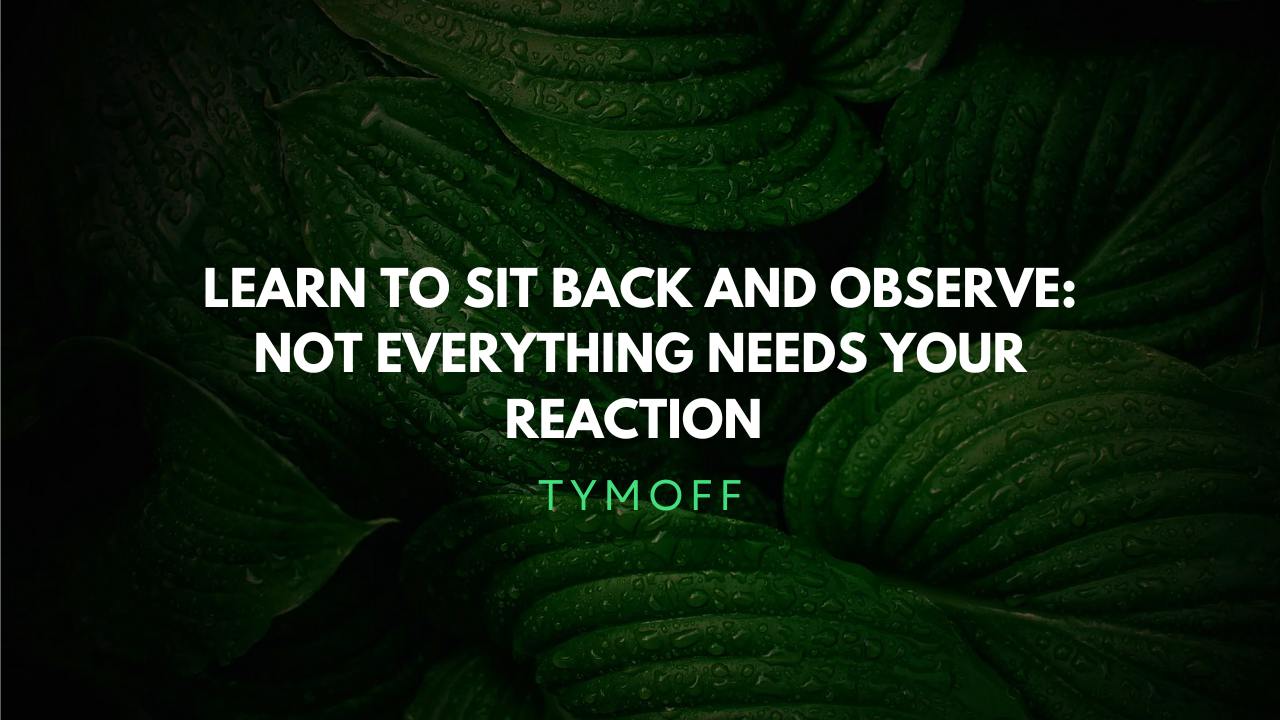Patience and observation are often underrated but powerful skills that can transform your personal and professional life. Learning to step back, observe, and respond thoughtfully instead of reacting impulsively can lead to better decisions, improved relationships, and inner peace. Let’s explore why embracing this mindset matters.
Understanding the Power of Observation
Observation is more than just watching; it’s about absorbing details and understanding the bigger picture. When you take the time to observe, you notice patterns, subtle behaviours, and opportunities that may otherwise go unnoticed. Observation helps you process situations calmly and with clarity.
By cultivating this habit, you reduce unnecessary stress. Instead of diving into every situation headfirst, you create room for thoughtfulness. This mindset helps you respond effectively and aligns your actions with your goals.
The Benefits of Patience in Daily Life
Patience is not just about waiting; it’s about how you wait and what you do during that time. When you pair patience with observation, your daily life becomes more intentional and fulfilling.
- Reduced Stress: Rushing to react often leads to mistakes. Patience allows you to assess situations calmly.
- Better Problem-Solving: With patience, solutions come more naturally because you’ve given yourself time to think.
- Improved Relationships: Waiting to understand someone’s perspective before responding fosters healthier communication.
Improved Decision-Making
Good decisions stem from informed understanding. Observing before acting provides the insights needed to make smarter choices.

Enhanced Relationships
Observation helps you connect with others. Paying attention to body language, tone, and emotions allows you to respond with empathy, strengthening your bonds.
Practical Ways to Practice Observation
Start small by setting aside moments to observe your surroundings. Watch how people interact, listen more than you speak, and reflect on what you see.
Mindfulness Exercises
Mindfulness is a key practice for better observation. Simple exercises like deep breathing, focusing on your senses and being fully present help you enhance your ability to observe. Over time, this improves not only your patience but also your ability to analyze situations calmly.
Active Listening
Active listening is a form of observation focused on communication. Instead of merely hearing words, pay attention to the speaker’s emotions, tone, and pauses. This skill helps in avoiding misunderstandings and builds trust in relationships.
When you listen actively, you gather deeper insights into what someone is trying to say. This approach strengthens connections and allows for meaningful conversations.
Journaling
Journaling is a practical tool to hone your observation skills. Writing down daily experiences, thoughts, and emotions allows you to reflect on them later. Over time, journaling helps you recognize patterns and make better choices.
For instance, if you notice recurring themes in your entries, such as stress caused by impulsive decisions, you can work on slowing down and observing more. Journaling also helps clear mental clutter and improves focus.
Overcoming the Urge to React Immediately
Reacting impulsively often leads to regrets. When you pause to observe, you create a gap between action and reaction, allowing yourself to respond thoughtfully.

Real-Life Examples of Observation Leading to Success
- Business Leaders: Many successful entrepreneurs observe market trends before making strategic decisions, ensuring their actions align with long-term goals.
- Personal Growth: Individuals who reflect on their behaviours and interactions often find more fulfilling relationships and personal satisfaction.
Incorporating Observation into Your Routine
Making observation a habit doesn’t require significant effort. Small, consistent practices can lead to significant changes over time.
Set Reminders
To cultivate patience and observation, set reminders on your phone or calendar. These reminders can prompt you to pause, take a deep breath, and observe your surroundings. Over time, this practice becomes second nature.
Embracing the Power of Observation
Observation isn’t a one-time act; it’s a lifelong skill. By embracing this mindset, you gain a deeper understanding of the world around you and your place in it. It allows you to act with intention, leading to personal growth and stronger connections with others.
The Bottom Line
Learning to sit back and observe isn’t just about avoiding mistakes—it’s about creating a life filled with thoughtful actions and meaningful relationships. Whether it’s through mindfulness, journaling, or active listening, incorporating observation into your daily routine can transform how you approach life’s challenges. Start today, and see how patience and observation can make all the difference.














Leave a Reply